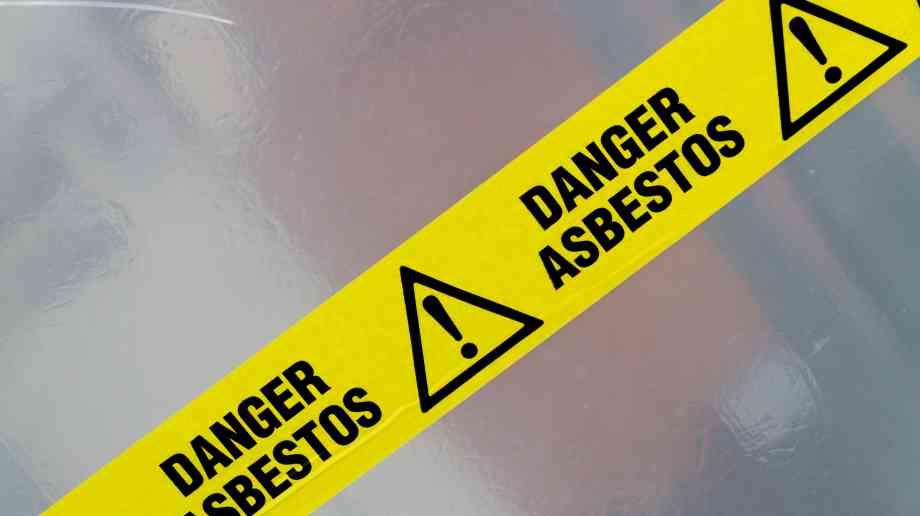
Asbestos: a hidden threat demanding visible action
Decades after its ban, asbestos continues to pose serious risks within the UK’s education estate. From classrooms to corridors, managing its legacy is both a legal obligation and a vital safeguarding duty – one that calls for strong leadership, robust training and a culture of compliance
Managing asbestos in schools, academies, colleges and universities is not simply a regulatory requirement - it is a critical duty to safeguard health of children and adults attending the premises.
Although asbestos has been banned in the UK since 1999, it continues to pose a significant health threat in buildings constructed or refurbished before 2000. From classrooms and sports halls, to corridors, boiler rooms and laboratories, the legacy of asbestos remains embedded across the education system.
Failure to properly identify and control asbestos-containing materials (ACMs) can lead to fatal health consequences, legal action and lasting reputational damage.
With the Health and Safety Executive (HSE) reminding education providers of the need for robust asbestos management, organisations must ensure their processes are not only compliant but aligned with legislation.
The Legal Landscape: Control of Asbestos Regulations 2012
The regulations give minimum standards for protecting employees from risks associated with exposure to asbestos. At the heart of asbestos regulation is the Control of Asbestos Regulations 2012 (CAR 2012). Regulation 4 - the duty to manage – requires those responsible for the maintenance or repair of non-domestic premises to assess and control the risks posed by asbestos.
In the education sector, this includes local authorities for maintained schools, governing bodies or academy trusts for academies and free schools, and boards of governors or councils for colleges and universities.
The duty holder is the person or organisation with legal responsibility for the premises. While operational tasks may be delegated to an appointed person, legal responsibility cannot be delegated.
Core responsibilities of the duty holder
Duty holders in education must identify the presence of ACMs in their buildings, assess the condition and associated risks of these materials, and create and maintain a written asbestos management plan. They must also monitor, review and update asbestos records regularly, and provide information to staff, contractors and anyone who may disturb asbestos during their work.
Many schools, academies and universities nominate an appointed person to manage day-to-day responsibilities such as liaising with surveyors and contractors and keeping records up to date. However, the duty holder remains legally accountable.
Training for compliance: the role of UKATA
Competence starts with training. The UK Asbestos Training Association (UKATA) provides CPD-certified training through audited providers across the UK.
Training relevant to the education sector includes training for the duty holder - those with strategic responsibility for asbestos management across an organisation such as headteachers, academy trust leaders, governors, or estates directors. This course focuses on legal compliance, understanding the risk landscape and embedding robust systems of control.
Then there's training for the 'appointed person'. This is for those overseeing asbestos registers, surveys and remedial works. The course covers how to maintain asbestos records, coordinate surveys and remediation works and ensure contractors are fully briefed.
There is also an overview course, which is a practical and accessible course for anyone assisting in the compliance of managing asbestos such as caretakers, facilities managers, maintenance teams and others supporting compliance. It provides an overview of essential legal knowledge and practical tools to manage asbestos effectively on the ground.
All training is delivered in line with current HSE guidance and ensures that attendees understand not only the letter of the law, but the practical realities of managing asbestos.
HSE best practice guidance
The HSE provides clear direction for education settings, including commissioning professional asbestos surveys (management or refurbishment/demolition surveys) from competent surveyors (HSE strongly recommends using accredited asbestos surveying organisations).
It also says they must maintain and update an asbestos register, prepare and review an asbestos management plan, and providing information to teachers, support staff, contractors and emergency responders. They must also ensure that the repair and removal of asbestos is carried out by someone trained and competent, either a contractor licensed by HSE or trained to work with asbestos as non-licensed work (level dependent on the type of work).
Between September 2022 and March 2023, HSE carried out a series of inspections of schools across England, Scotland and Wales to complete a detailed assessment of the effectiveness of asbestos management arrangements. The aim of these visits was to determine compliance with their legal duties under the Control of Asbestos Regulations to manage asbestos across the sector and identify any commonly occurring issues.
Just over 66% of the 421 schools visited were found to be managing asbestos effectively and required either no further action or only verbal advice. A small number (7%) of schools visited required formal enforcement action and most of these related to improvements being required in their management plans or surveys.
Regarding the improvement notices, it is important to note that staff and pupils were not at risk of exposure and the general conditions on site were reasonable. Although multiple factors led to notices being served, the most common failings included inadequate or missing asbestos management plans (13 and 8 cases respectively), and inadequate or missing asbestos surveys (5 cases and 1 case respectively).
Action was taken to ensure plans and surveys specifically identified ACMs currently on site and areas presumed to contain them.
Schools should ensure they have a survey carried out by a competent person to identify ACMs and produce a register clearly showing their location. HSE recommends that registers are reviewed every 12 months and updated, especially where there have been changes to the estate.
This year Sam Lord, HM Principal Specialist Inspector of HSE announced at UKATA’s asbestos conference, that HSE inspectors will return in 2025 to inspect local authorities to address the management of asbestos as they have the lowest level of compliance.
Public health and legal risks
The health risks of asbestos are severe, even at low levels of exposure and include mesothelioma, lung cancer, asbestosis and pleural thickening.
Given the long latency period of asbestos-related illness (15-60 years), exposures today may not cause disease for decades. This is particularly concerning in schools, where children are more vulnerable to the effects of exposure. For more information on mesothelioma and the support available, visit Mesothelioma UK’s website.
A challenge and an opportunity
Managing asbestos in education is undoubtedly challenging, particularly with ageing estates and financial constraints. But this challenge also represents an opportunity to strengthen safety culture across education settings, modernise management practices with digital asbestos registers and compliance tools, and raise awareness among staff and students about the risks and responsibilities surrounding asbestos.
Above all, asbestos should be viewed as a critical safeguarding issue in education, not an administrative afterthought.
What education providers should do now?
If you are responsible for a school, academy, college or university, you should review your asbestos management plan against CAR 2012; confirm the identity of your duty holder and appointed person; and update asbestos registers and commission new surveys where necessary. Duty holders shoudl also provide up-to-date training for all relevant staff, ensure records are digital, accurate and accessible, and communicate openly with staff, students and contractors about asbestos risks and controls.
Conclusion
The presence of asbestos across the UK’s education estate will not disappear any time soon. But with strong leadership, robust training and commitment to compliance, schools, academies, colleges and universities can meet their legal duties, protect their communities, and prevent the devastating consequences of asbestos mismanagement.
Further Information:
Latest News
08/10/2025 - 10:10
Nearly three-quarters of teachers (72%) say the current SEND system fails children, yet more than half (56%) expect anticipated reforms to negatively impact SEND pupils with complex needs.
08/10/2025 - 10:02
Over a quarter of all schools and colleges across England are taking part in the free National Education Nature Park programme, which sees young people create nature-rich spaces on school sites.
07/10/2025 - 09:35
Sixty-five per cent of parents and grandparents have said they felt driving should be on the school curriculum, according to a survey by Young Driver.
07/10/2025 - 09:20
The government has announced a new package of bursaries and scholarships worth up to £31,000 to train to teach in subjects including chemistry, maths, physics, and computing.
06/10/2025 - 10:20
Schools in England could face an annual shortfall of £310 million in covering the cost of free school meals unless urgent action is taken, according to a new report led by Northumbria University.







